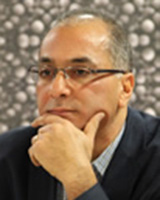
Deadline January 31, 2018
The Transplantation Society’s Governing Board bestows Honours and Awards to recognize individuals contributing to the field of transplantation through outstanding achievement (for basic scientists, clinicians and in developing countries), and mentorship and training. All members of TTS in good standing are eligible to make nominations and to be nominated for these Awards.
- Award for Outstanding Achievement in Transplantation (Basic Science)
Will be awarded to an individual who has made outstanding contributions to transplantation science. - Award for Outstanding Achievement in Transplantation (Clinical)
Will be awarded to an individual who has made outstanding contributions to clinical transplantation. - Award for Outstanding Achievement in Transplantation (Developing Country)
Will be awarded to an individual who had made outstanding humanitarian contributions - Award for Mentorship or Education and Training in Transplantation
Will be awarded to an individual who has made outstanding contributions in mentoring or to education and training in the field of transplantation.
Click here for more information and to nominate some one today!
Deadline January 31, 2018
To recognise women role models in the field, The Women in Transplantation Steering Committee has created the following awards:
- The Woman Leader in Transplantation Award
To recognize a woman who has helped further the field of transplantation through research, policies, leadership, initiatives or other regarded contributions. - The Unsung Hero Award
Will be presented to one woman who has had an extraordinary impact in transplantation through community service, volunteering, mentorship or other community based activity.
Click here for more information and to nominate some one today!

Wednesday, December 6, 2017
10am EST (8am Edmonton)
Death Declaration by an Intensive Care Doctor
 |
Speaker: Professor Sam Shemie, MD Division of Critical Care Medicine, Montreal Children's Hospital, McGill University Health Centre & Research Institute Professor of Pediatrics, McGill University Honourary Staff Physician, Department of Critical Care Medicine, Hospital for Sick Children, University of Toronto Medical Advisor, Deceased Organ Donation, Canadian Blood Services |
Click here for more information and to register.
TTS 2018 AbstRact Deadline Extension
TTS 2018 Find&FIll the Gap Contest
We want you to contribute to the Congress by finding a gap in the congress program and submitting your own proposal to fill it. Submissions will be reviewed by the Program Committee and the top proposals will be voted on by the community. Winners will be part of the official program and be hosted in the TTS Innovation Studio in the Exhibit Hall.
Deadline Reminders
Young Investigator and International Mentee-Mentor Awards - December 8, 2017
TTS and partnering affiliated societies are offering many awards for TTS 2018. All awards require abstract submission, please visit our website for more details.
TTS Officer / Council Nominations - January 31, 2018
TTS is seeking nominations for three Officer positions that will be vacated in 2018: President-Elect, Vice President and Treasurer. In addition, five of the 12 Councilors-at-large will be changing.
Click here for to nominate someone today! (Requires login)
Medawar Prize Nominations - January 31, 2018
The Medawar Prize, named after Society co-founder Sir Peter Medawar, is recognized as the world's highest dedicated award for the most outstanding contributions in the field of transplantation.
IN THE NEWS
Could this end organ rejection? Breakthrough shows a discarded diabetes drug could prevent life-threatening complications after heart transplant surgery
November 21 - A discarded diabetes drug could be the key to beating organ transplant rejection, a landmark study has found. One in six heart recipients die within a year, and those that do survive face higher risk of infection, weight gain, cancer and diabetes from their life-long regime of immunosuppressant drugs. However, a new study by Queen Mary University of London found that by repurposing a drug designed to treat diabetes, they could speed up the process necessary for the blood system to fuse into the new organ.
This robot can help keep pig hearts beating by gently squeezing them
November 22 - Scientists have created a new robotic device that can keep a failing heart beating by gently squeezing half of it. The device has only been tested in pigs for now, but it holds the potential to one day save the lives of people with heart failure.
Research points to diagnostic test for top cause of liver transplant in kids
November 22 - Biliary atresia is the most common cause of liver transplants for children in the United States. Now researchers report in Science Translational Medicine finding a strong biomarker candidate that could be used for earlier diagnosis and lifesaving treatments, possibly avoiding more invasive procedures like liver transplant.
Man Develops Rare Infection 30 Years After First Exposure
November 22 - An uncommon fungal infection appears to have lingered in one man's body for 30 years before making itself known in his brain — and a heart transplant may have played a role in making him sick, a new report of the man's case reveals.
Process used to select lung transplant patients may need to be changed: study
November 14 - With a limited number of lungs available, deciding who gets a transplant can be a matter of life or death. New research from the University of Maryland School of Medicine (UMSOM) suggests that the system for choosing transplant recipients in chronic obstructive pulmonary disease (COPD) may underestimate how long a person might survive without a lung transplant and therefore, may mislead clinicians.
U.S. man with rare disease is first to undergo gene editing in the body
November 15 - Scientists for the first time have tried editing a gene inside the body in a bold attempt to permanently change a person's DNA to cure a disease. The experiment was done Monday in California on 44-year-old Brian Madeux. Through an IV, he received billions of copies of a corrective gene and a genetic tool to cut his DNA in a precise spot
Contact
Address
The Transplantation Society
International Headquarters
740 Notre-Dame Ouest
Suite 1245
Montréal, QC, H3C 3X6
Canada




